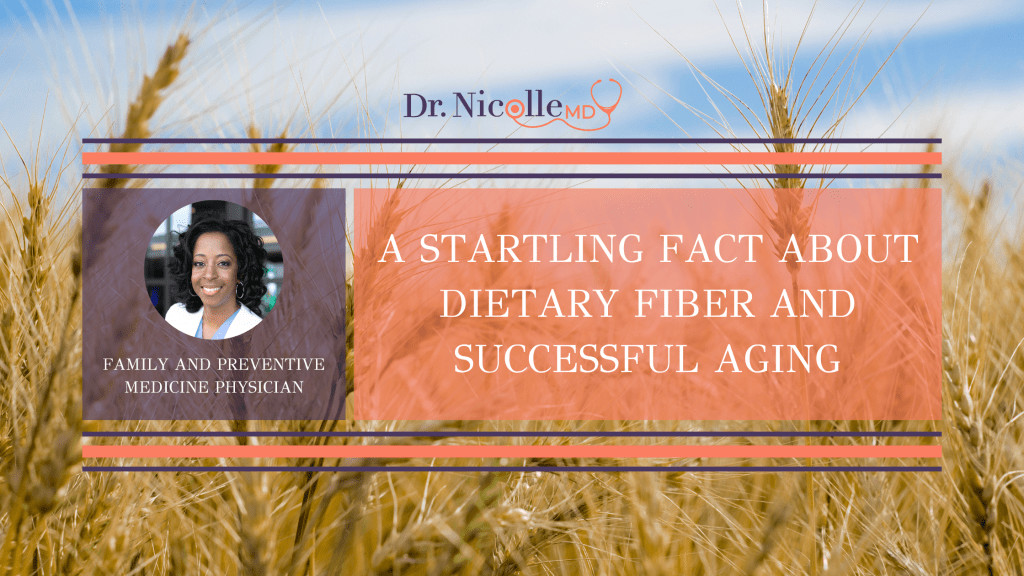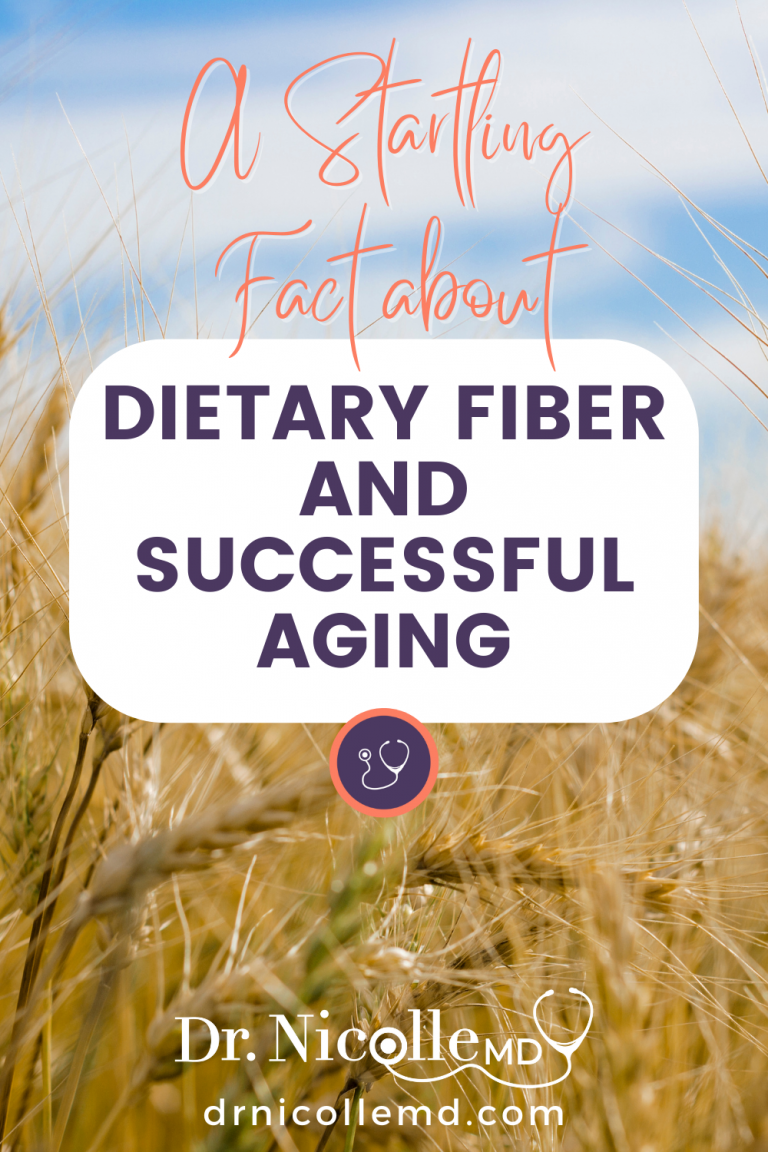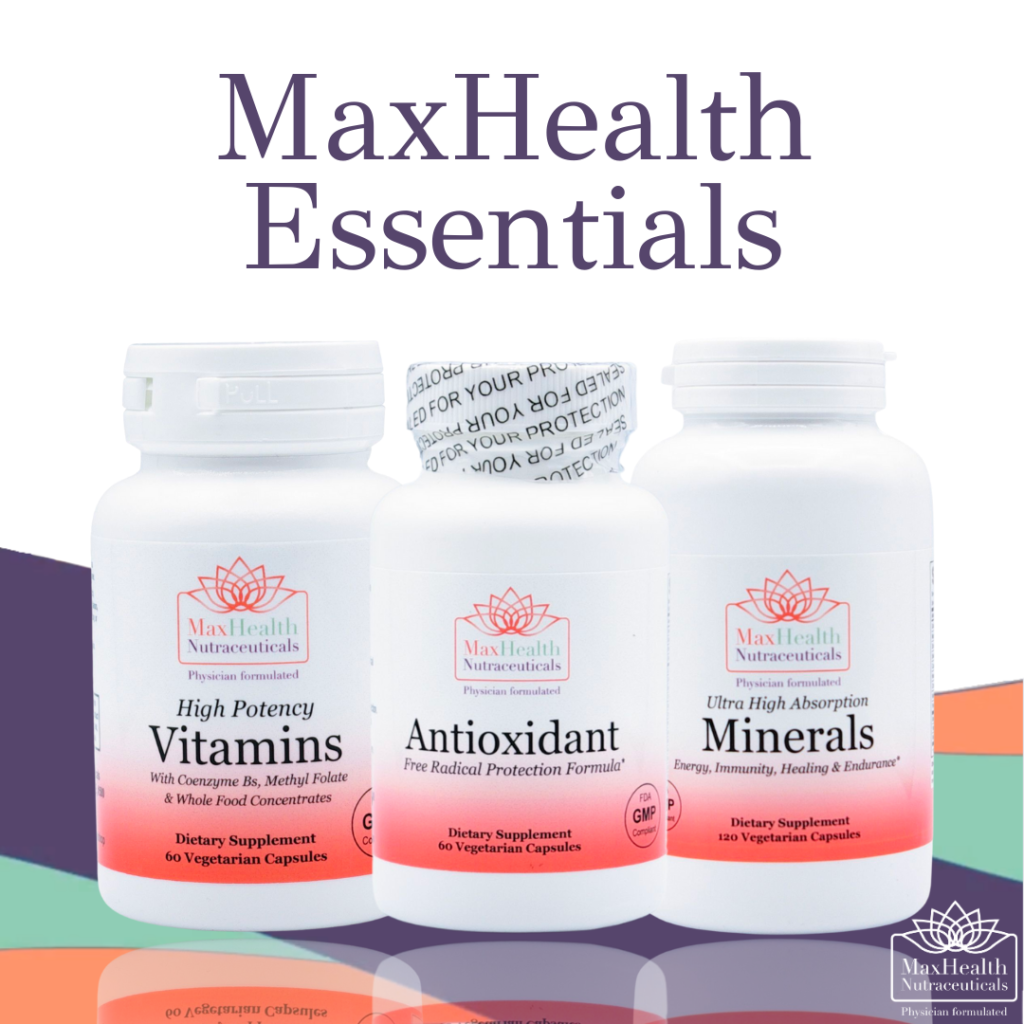

Fiber intake is the key to successful aging according to a recent study from Australia. Seniors with the highest intake of fiber had an almost 80% greater chance of living a long and healthy life.
Even the scientists were surprised by the results. Fiber had a greater impact than any other dietary factor they studied, including sugar consumption. Adults who ate more complex carbohydrates significantly lowered their risk for hypertension, diabetes, dementia, depression, and disabilities.
If you want to live a longer and enjoy a more active life without eating like a rabbit, study these practical tips. You’ll learn new facts about fiber and how to include more roughage in your diet.
Facts about Fiber
1. Understand your needs.
The average American eats about 15 grams of fiber a day, which is far below the recommended levels. Individual requirements decrease slightly with age, and vary from a minimum of 21 to 25 grams for women and 30 to 38 grams for men.
2. Cover both bases.
Fiber comes in two forms, soluble and insoluble, depending on whether it dissolves in water. Soluble fiber lowers cholesterol and protects your heart. Insoluble fiber enhances your digestion and helps you stay regular. Eating a variety of foods provides enough of both.
3. Know the benefits.
Foods rich in fiber make you feel full with fewer calories so you can manage your weight. They also help you stabilize your blood sugar and reduce your risk for certain cancers, heart disease, and diabetes.
4. Take it gradually.
Give your digestive system time to adapt to more fiber. Add about 2 to 3 grams a week to avoid bloating and diarrhea.
5. Drink more water.
Drinking plenty of water will maximize the digestive benefits of fiber, and minimize constipation and gas. Stay hydrated around the clock.

Eating More Fiber
1. Breakfast hearty.
It’s easier to take in more fiber when you start early. Prepare a bean burrito or whip up a smoothie with kale and fresh fruit.
2. Adjust the menu.
Bulk up the dishes you love with a few simple tweaks. Stir shredded cabbage or carrots into chili and meatloaf. Top off your pizza with mushrooms and onions. Sprinkle a cup of beans into your salad.
3. Switch to whole grains.
Trade in ultra-processed white bread and rice for their healthier versions. Order brown rice when you’re eating out. Make sandwiches with whole wheat wraps.
4. Cook fast.
Some cooking methods, like boiling, rob vegetables of fiber and important nutrients. Steaming or microwaving will let you enjoy all their goodness.
5. Bake at home.
You don’t even have to give up cookies and cake to make room for fiber. Rely on your own oven instead of supermarket brands so you can use ingredients like oats and whole wheat flour.
6. Keep the peels.
Stop wasting apple and potato skins. Many vegetables and fruits have edible peels and seeds packed with fiber.
7. Snack smart.
Use snacks as well as meals to help you reach your fiber goals. Dip raw vegetables into hummus. Create a trail mix with dried fruit, nuts, and seeds.
8. Read labels.
Manufacturers know that consumers are looking to eat more fiber.
Check the label to see how many grams a product really contains. When an item says it’s an excellent source of fiber, it must contain at least 5 grams per serving.
The verdict is clear. Fiber can help you manage your weight now, and help protect you from heart conditions and other diseases as you age. If you want to reach your golden years with fewer health issues and higher functioning, eat more complex carbohydrates like vegetables, nuts, breads, and fruits.
I would love to give you a free resource sheet to support your overall wellness. Click the button below to receive your gift.
I really wanted to talk about this topic today because your natural health and wellness is important. You can adopt healthy lifestyle practices that improve your health, your environment, and enrich your life, which can in turn improve the lives of those close to you. You have the power to break the cycle of poor health, including chronic disease, so that you can leave a legacy of health to your loved ones.
I use functional medicine and lifestyle medicine as the first line of treatment, before medications, to treat lifestyle-related chronic diseases. Lifestyle-related chronic diseases include diabetes, hypertension, obesity, and some cancers, just to name a few. Lifestyle practices, such as eating a whole-food plant-based diet and regular physical activity, can help you lose weight, reverse some chronic diseases (if you suffer from them), and can even help you with detoxification. In certain cases, these approaches may even outperform pharmaceutical therapy.
But I always tell my patients that conventional medications may be appropriate at this time to prevent catastrophic illness, but over time, you can work to make the necessary lifestyle changes to possibly reduce and/or eliminate medications. Please remember to always consult your physician for your particular needs and circumstances prior to making any decisions whatsoever.
Is Dietary Supplementation Right For You?
For some people, vitamin and mineral supplements offer important health benefits. Supplements are designed to fight deficiencies found in our diet and complement the food we eat regularly. Supplements are basically “helping hands” to our daily food.
If you suspect that you aren’t getting the nutrients you need, consider shifting your focus from supplements to eating better.
But it is very important to note that we are not eating the same foods we ate years ago because the soils have been depleted of critical nutrients through current industrial farming practices. And because the soil is not as good as it used to be, the food supply (grown from the depleted soil) is not as good as it used to be. For example, you are not getting the same levels of magnesium as you would have gotten 30 or even 50 years ago.
Second, much of the food has been genetically altered, which can impact the inherent and unique nutritional composition that each food possess. For example, ancient einkorn wheat has less gluten, more protein, more Vitamin A, and more beta carotene, than modern genetically modified wheat.
Third, the toxic load in the environment today is much higher than 100 years ago. We can see this with global warming, toxic landfills, polluted oceans and waterways, etc. Toxicity levels interfere with nutrient assimilation and absorption not just into the foods, but into our bodies as well.
So… if you are unable to eat better, the supplements in my MaxHealth Essentials Bundle may provide the extra boost you need.
These are my favorite Wellness and Immune-Boosting Supplements to use! This MaxHealth Essentials Bundle will ensure you have the intake of the important vitamins, minerals, and antioxidants to decrease inflammation and boost your innate wellness day and night. Taken together, it’s a solid plan for increasing your body’s natural resiliency.
For best results make sure you use the supplements with dietary changes including a whole food plant-based diet, regular exercise (at least 2-3x per week), regular sleep (8 hours per night), and intermittent fasting (at least 1-3x per week).
Weight Monitoring
Since weight management is very important in combatting chronic diseases, I recommend that you be mindful of your weight and its fluctuations, and that you monitor your weight AT LEAST on a weekly basis. I recommend a scale that includes a body composition monitor (*this scale cannot be used with a pacemaker or other implanted devices).
Physical Activity
Physical activity (or exercise) can improve your health and reduce the risk of developing several chronic diseases like high blood pressure, type 2 diabetes, and cancer, just to name a few. Physical activity can improve your mood, boost your immune system, help you maintain a healthy weight, and is a great way to detox your body!
I often recommend yoga and resistance training for physical activity, but as you are aware, there are plenty of forms of “movement” that you can do! But for the basics, especially if you’re just getting started, yoga and resistance training are where I would start.
Yoga
Yoga can be a great way to improve your strength and flexibility, manage your stress, improve your heart health, and lose weight! I recommend using a grounded yoga mat to connect yourself with the earth and reduce inflammation.
Resistance Training
Resistance training is the mainstay for overall health. It not only has beneficial effects on reducing body fat, it also increases muscle size and strength. Check out some basic dumbbells/free weights that I recommend to everyone.
Another alternative for dumbbells/free weights are resistance bands. They are great for physical therapy, yoga, strength training, and excellent for traveling.
Remember, living a healthy lifestyle including eating a whole foods plant-based diet, regular physical activity, and reducing stress are the best ways to maintain a healthy weight. Let me know what you think in the comment section below.

Dr. Nicolle Martin
Some of the links in this article are "affiliate links", a link with a special tracking code. This means if you click on an affiliate link and purchase the item, we will receive an affiliate commission.
The price of the item is the same whether it is an affiliate link or not. Regardless, we only recommend products or services we believe will add value to our readers.
By using the affiliate links, you are helping support our Website, and we genuinely appreciate your support.
Last updated on July 13th, 2022 at 06:20 am

Minimize Medications. Maximize Health.
Are you super busy but need to take control of your health? Are you tired of being tired? Subscribe to my “Minimize Medications, Maximize Health Blog” and I’ll give you 7 Tips to Get Healthy in No Time absolutely FREE.






